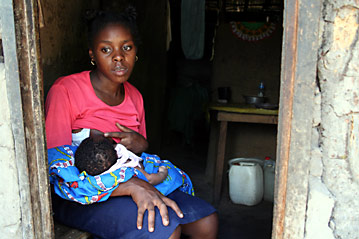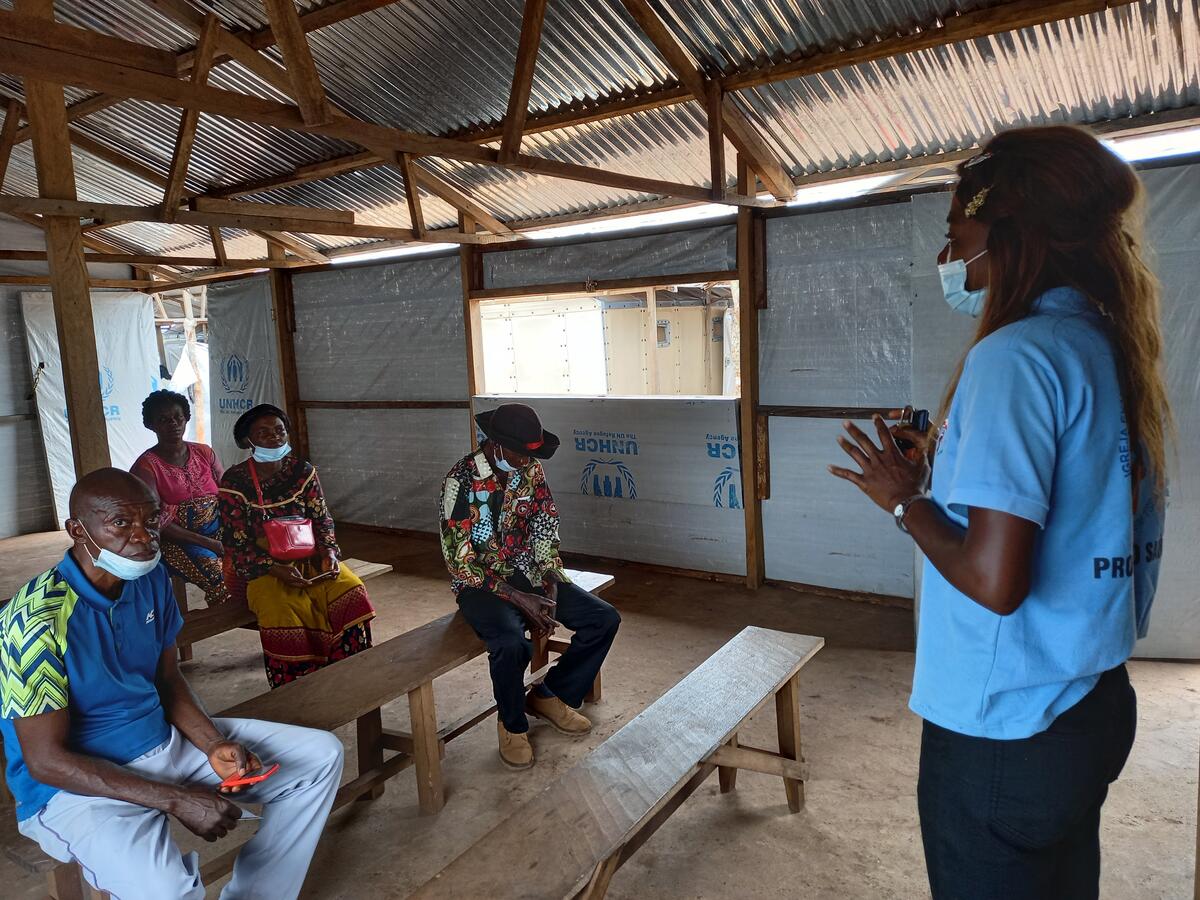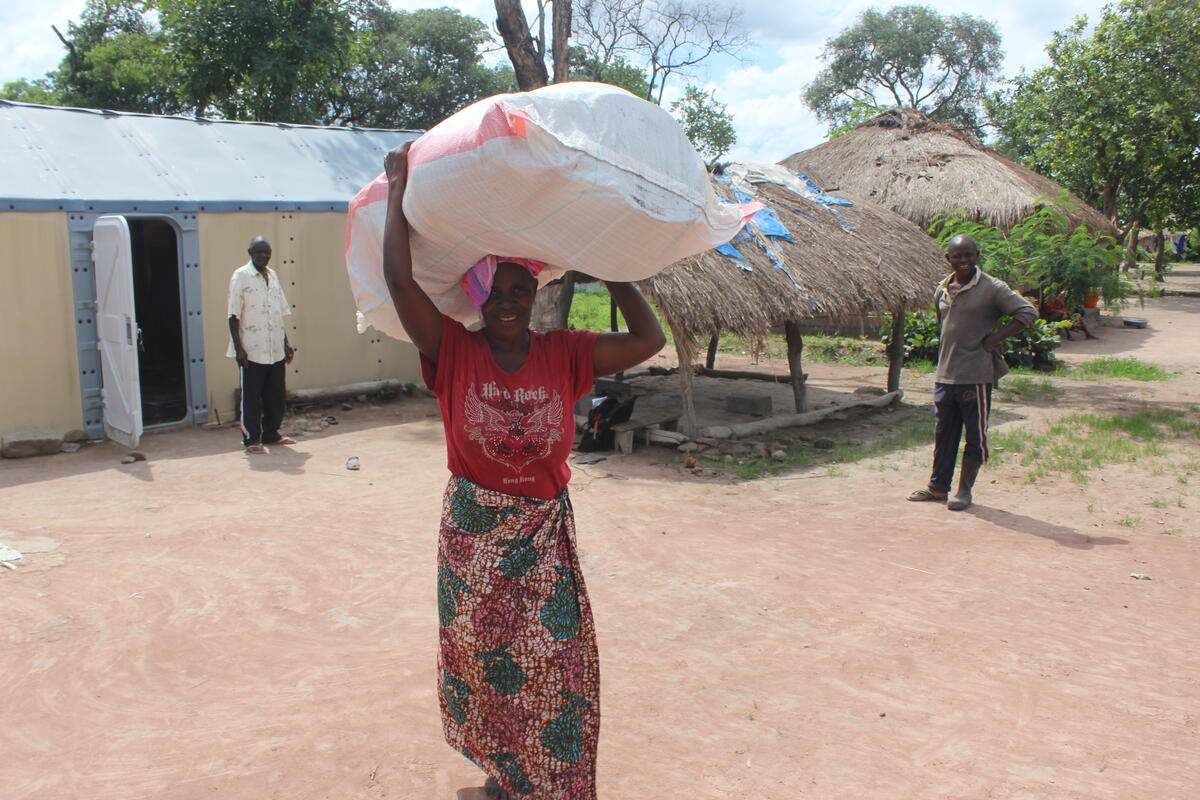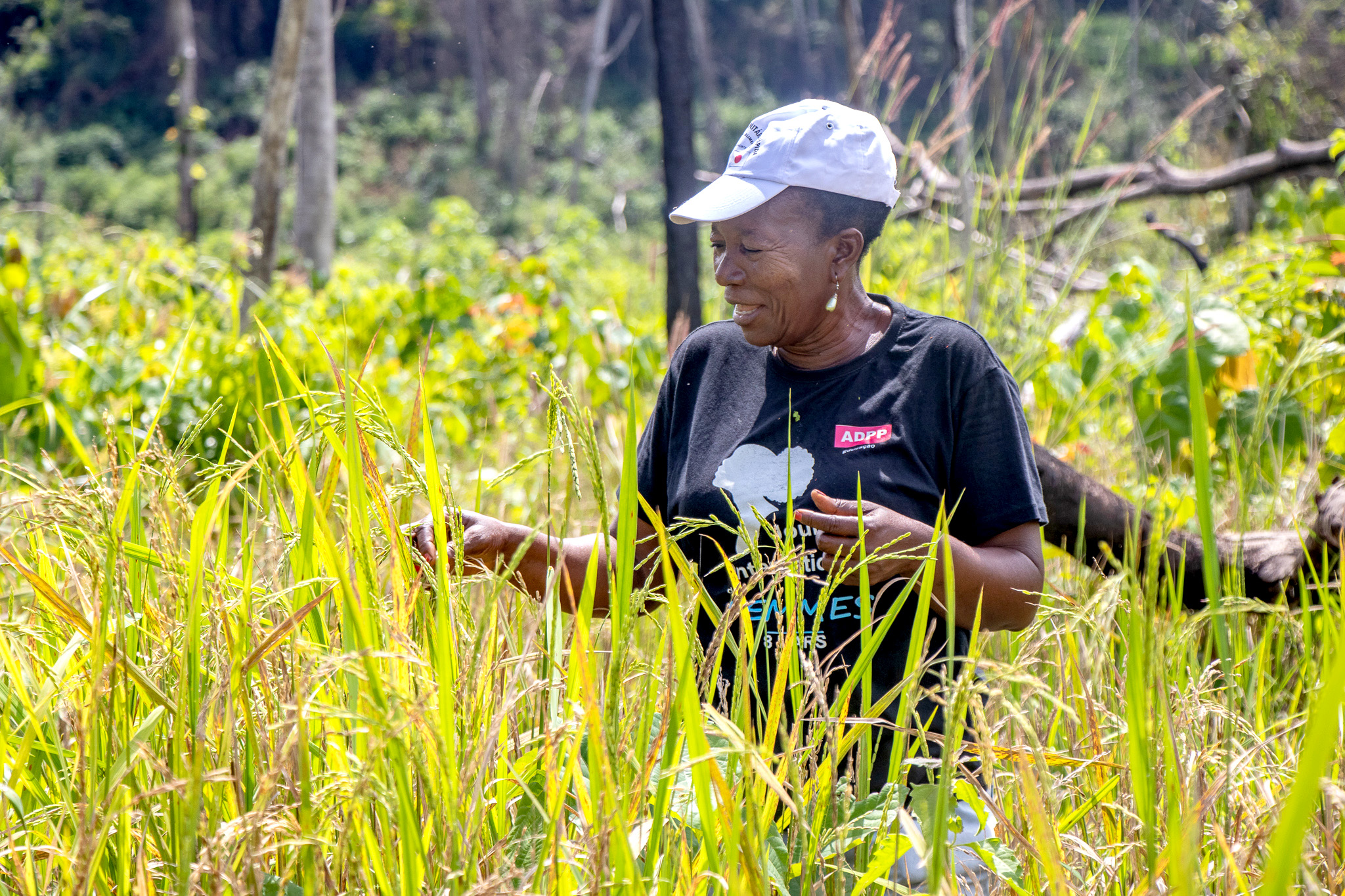UNHCR starts major relocation of Angolan refugees in Zambia
UNHCR starts major relocation of Angolan refugees in Zambia

LUSAKA, Zambia, October 2 (UNHCR) - The UN refugee agency on Monday began transferring remaining Angolans from the Nangweshi refugee camp in western Zambia, starting the closure of a site that was established in 2000 to shelter people fleeing the last convulsion of the civil war in Angola.
With UNHCR's four-year programme of voluntary repatriation for Angolan refugees ending this year, the refugee agency plans to relocate those who have chosen not to return home from Nangweshi to Mayukwayukwa refugee settlement, also in Western Province, by the end of October.
Nangweshi, located on the western bank of the Zambezi River in Shang'ombo district, is one of Zambia's most recent refugee camps and currently hosts about 15,000 Angolans. Although the number of Angolans asking to repatriate this year has been low, it is expected many of those still in Nangweshi could opt to repatriate rather than relocate to Mayukwayukwa.
Those not going back to Angola will be moved to Mayukwayukwa in Kaoma district in convoys and Nangweshi will be closed by the end of the month. It was opened in January 2000 at the height of the last stage of the Angolan civil war and, unlike the older refugee settlements of Meheba and Mayukwayukwa, does not provide farm land.
The location of Nangweshi refugee camp, with inhibiting terrain and seasonal floods, made it difficult for UNHCR to provide humanitarian assistance. In addition, refugees there cannot become self-reliant because of the limited agricultural land and infertile, sandy soil.
The relocation to Mayukwayukwa will provide Nangweshi refugees who opt to remain in Zambia after UNHCR's assisted repatriation ends in December with better prospects of self-reliance, especially when humanitarian assistance is eventually withdrawn as the Zambia refugee operation scales down in coming years.
Above all, the closure reflects the successful UNHCR voluntary repatriation programme that has helped nearly 64,000 Angolan refugees to return from Zambia since 2003, leaving only about 29,000 Angolan refugees still in camps and settlements in Zambia.
During Angola's 27-year-long war, some half-a-million Angolans fled their country and millions more were internally displaced. When a peace agreement was signed in 2002, an estimated 457,000 Angolans were refugees outside the country's borders. Since then, more than 370,000 have come home, including 123,000 brought back by UNHCR. Many of the rest have received UNHCR assistance on arrival.
With the smaller population, it is no longer cost effective to run Nangweshi. In 2004, a camp in Zambia's Eastern Province, Ukwimi, was closed after the successful repatriation of Angolan refugees from that site.
The relocation is being undertaken simultaneously with the continuing Angolan repatriation programme. Both exercises were preceded by intense information campaigns conducted by senior government, UNHCR and Angolan embassy personnel.
"The relocation will be undertaken on a section-by-section basis. On arrival in Mayukwayukwa, refugees will be hosted at a reception centre for a maximum of one week, within which period they are expected to build their own grass houses and move out of the reception centre," said Vedasto Mwesiga, UNHCR Zambia acting representative.
Some shelter materials, such as poles, grass and plastic sheets will be provided to the refugees.
The transport of refugees from Nangweshi to Mayukwayukwa is being handled by the International Organization for Migration, while the government provides security personnel for the exercise. The Danish government gave US$320,000 to fund the relocation.
As of July, Zambia was still hosting almost 155,000 refugees, including some 74,000 in camps and the rest settled on their own elsewhere in the country. The great majority of the refugees are from the Democratic Republic of the Congo and Angola, with most others from elsewhere in the Great Lakes region.








